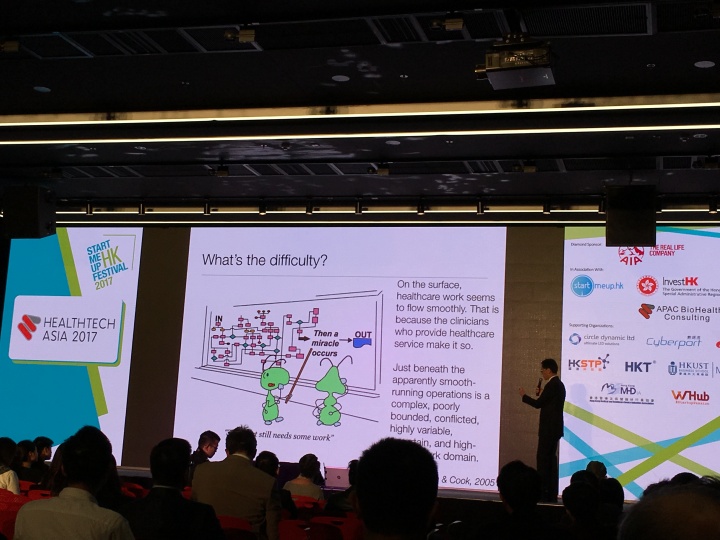
Healthtech funding topped $4.2bn in 2016 alone (according to Rocket Health), even though total funding was down slightly from 2015, the number of deals has increased by 8%.
The funding figures shows that the world is interested in healthtech, but why? When looking at it, the macro environment which drives the uprise of tech in this sector needs to be understood. In this blog, I am going to talk about the four reasons why healthtech is on the rise, this list is not exhaustive, and you’ll find the first two points being the main drivers, and the latter two being the key reasons why healthtech industry will only going to grow bigger.
- Ageing population Multiple long-term conditions as a consequence of ageing population is driving governments across the world to rethink care delivery model so as to keep patients out of hospital. More and more governments have started to think about different care models, some of which involves “virtual wards”and telemedicine that could shorten the time of triage and so diagnosing patients a lot more efficiently. Tech plays a big role in helping to improve quality patient care that could be delivered whilst minimising the pressure it imposes on the existing health system.
An example for keeping patients out of hospital would be how to predict a patient’s tendency of hospital admission by learning the trends in a patient’s data. However, this is not an easy task due to data transparency and the complexity of the data sets.
- Imperfect healthcare systemHealthcare systems are fragmented and many patients find it difficult to navigate around it in order to receive the right treatment. The system is also pressured by ageing population which is driving costs up. To put funding in the right place within healthcare, it is important to understand where the gaps are and how to streamline the system as whole, from community care to tertiary care. If tech solutions are targeting the fragmented system in a practical way, it could lower costs significantly and improve care quality for many.
A clear example is developing coordinated care solutions such as platforms that have been developed in order to allow easier access to doctors. These can be doctors’ appointment apps, platforms to find a doctor, or a concierge concept for medical triage. In countries like the UK, platforms such as Babylon health and Doctor Now are already fairly mature. They are leading examples of telemedicine and have made healthcare more easily accessible for patients. In places such as Hong Kong however, this kind of solutions might not be applicable at all because of the proximity to the hospitals and clinics. In this case, solutions that could allow patients monitoring, enhanced knowledge sharing with patients etc. will likely to be more suitable.
- Relevance with other industriesTelcos, retail, insurance, tech giants are all actively investing in or acquiring healthtech companies in the last few years. For example, UnderArmour purchased MyFitnessPal for $475million; Google led a $40million round of funding for behavioural startup Quartet Health.. the list goes on. The main reason for this is that telcos or tech giants realised that they have the ability to power healthtech products and help them expand. For insurance companies, they realised that healthtech is a way for them to keep their customers healthy, hence de-risking for them. For retail companies, tech has evolved in such a way that it will increase their competitiveness if they could improve their customers’ lifestyle through healthtech.
- ConnectivityLast but not least, connectivity is a huge driver for all of this. More and more people will own a smartphone, and there will be more connected devices in the market which can contribute to healthcare one way or another. Patients are looking for different ways to interact or access healthcare, devices they own can also collect data and predict when they are going to sick, or help monitor their chronic conditions.
Whilst healthtech is becoming a huge topic, it is also crucial to consider how data can be secured, used, and shared. The only way for healthtech to really improve health is when consumers have the ability to own and control their data.